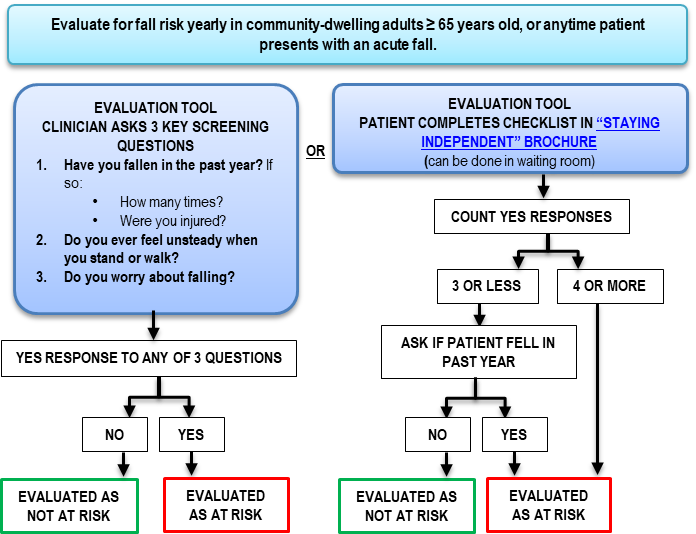3 Simple Techniques For Dementia Fall Risk
3 Simple Techniques For Dementia Fall Risk
Blog Article
Indicators on Dementia Fall Risk You Need To Know
Table of ContentsDementia Fall Risk Fundamentals ExplainedThe Single Strategy To Use For Dementia Fall RiskFascination About Dementia Fall RiskSome Of Dementia Fall RiskDementia Fall Risk Things To Know Before You Buy
You might be nervous because you've had a fall before or because you've seen you're beginning to really feel unsteady on your feet. You may have discovered adjustments to your health and wellness, or just really feel like you're reducing down a little. Whatever the factor, it isn't unusual to become careful and shed confidence, and this can stop you doing the points you used to do and make you really feel extra separated.If you have actually had an autumn or you've started to really feel unstable, tell your doctor also if you really feel fine otherwise. Your medical professional can examine your equilibrium and the way you walk to see if renovations can be made. They might be able to refer you for a drops threat evaluation or to the falls avoidance service.
This information can be gotten with interviews with the person, their caretakers, and an evaluation of their medical documents. Begin by asking the private about their background of falls, including the regularity and scenarios of any type of current falls. Dementia Fall Risk. Inquire about any kind of flexibility issues they may experience, such as unstable or problem walking
Conduct an extensive evaluation of the individual's drugs, paying specific attention to those recognized to enhance the threat of drops, such as sedatives or medicines that lower high blood pressure. Determine if they are taking multiple drugs or if there have been current changes in their medicine regimen. Examine the individual's home environment for prospective threats that might raise the danger of drops, such as poor illumination, loosened rugs, or absence of grab bars in the bathroom.
Everything about Dementia Fall Risk
Overview the person with the fall risk assessment kind, clarifying each inquiry and videotaping their feedbacks properly. Determine the overall risk rating based on the feedbacks given in the evaluation type.
Frequently monitor the person's progress and reassess their threat of falls as required. Offer recurring education and assistance to promote safety and security and reduce the threat of falls in their day-to-day living activities.
Numerous researches have shown that physical treatment can help to minimize the danger of falling in grownups ages 65 and older. In a new research study (that looked at falls threat in ladies ages 80 and older), scientists calculated the economic effect of selecting physical treatment to prevent drops, and they found that doing so conserves $2,144, including all the covert expenses of your time, discomfort, missed out on life occasions, and the bucks paid for services.
Not known Facts About Dementia Fall Risk
Checking your heart price and high blood pressure dimensions at remainder and while you turn (from sitting or lying to standing). A simple test of your reasoning (cognitive) capacities. Examining your equilibrium, stamina, and walking ability. A straightforward vision examination. Examining your feet and footwear. A home safety assessment. Based upon the examination results, your physical therapist will design a strategy that is tailored to your specific demands.
Older grownups that have trouble strolling and speaking at the same time go to a greater danger of dropping. Dementia Fall Risk. To aid enhance your safety throughout everyday activities, your physical specialist may develop a training program that will certainly test you to preserve standing and strolling while you do an additional task. Instances include walking or standing while counting in reverse, having a conversation, or lugging a bag of groceries
Establish objectives for increasing their physical activity. Work out a lot more to enhance their stamina and equilibrium. These programs commonly are led by volunteer instructors.
Dementia Fall Risk Things To Know Before You Get This

Measles, or rubeola, is an extremely transmittable, severe viral contagious illness brought on by the measles virus. Some individuals assume of measles as simply a breakout and high temperature that clears in a few days; however, measles can trigger major health and wellness problems, particularly in kids younger than 5-years-old. The finest protection versus measles is the measles, mumps, and rubella (MMR) vaccination.
Autumns are an usual root cause of injury among older grownups. According to the CDC, in one year alone, fall-related injuries added to over $50 billion in medical costs (Dementia Fall Risk). In healthcare facility settings, older adults are at especially high risk of drops due to the fact that their decreased wheelchair from being restricted to a room or bed.
Unknown Facts About Dementia Fall Risk

She my company has no history of drops, her stride is consistent, and she nullifies with no problems. The previous nurse states that she calls for aid to the bathroom when she requires to go.
Examples of common loss interventions/measures consist of: Ensuring a patient's essential things are accessible. Placing the person's bed rails up with the alarm on. Assisting a person while they're obtaining up from bed. Beyond recognizing exactly how to use the Johns Hopkins Fall Danger Assessment Device, it is necessary that facilities include its Get the facts usage right into an extra extensive loss avoidance strategy.
Report this page